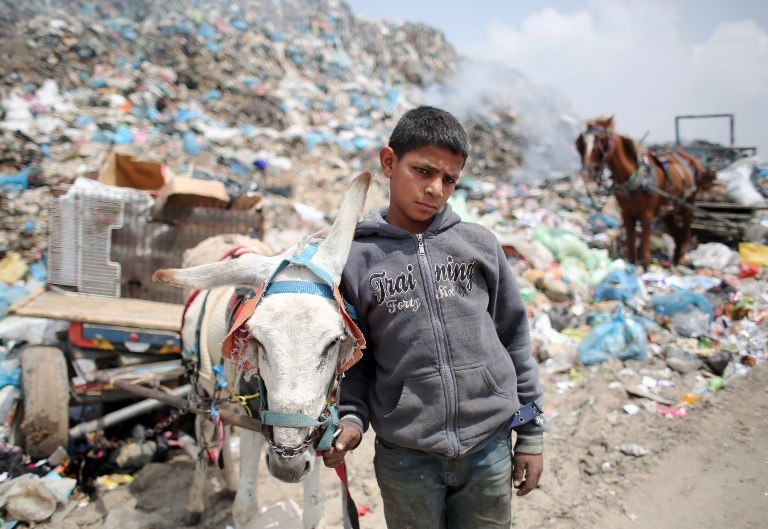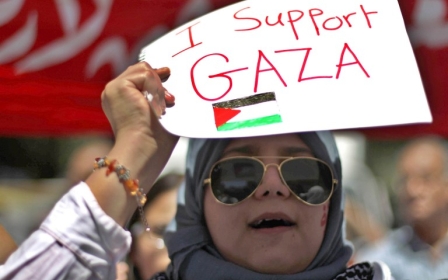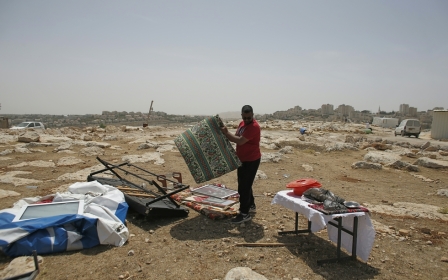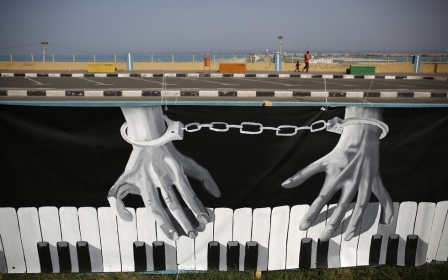UN ‘buries’ resolution on Gaza’s environmental health crisis under US, Israeli pressure

A draft United Nations resolution calling for a team of UN experts to assess the environmental impact of Israeli military operations in the Gaza Strip in November 2012 and July-August 2014 was effectively “buried” by the United States, Canada and Israel on Saturday.
The final round of government meetings at the United Nations Environment Assembly (UNEA) in the last week of May resulted in the passing of 25 resolutions, including a landmark resolution calling for states to implement all international law on protecting the environment during war in national legislation.
However, the draft resolution on Gaza calling for a UN field assessment of environmental damage caused by war 2012 and 2014 was aborted amidst a storm of controversy.
US-Israeli pressure
The resolution had originally been tabled by Morocco with the backing of the Arab League, Lebanon, Oman, Egypt, Algeria, South Africa, Djibouti, Venezuela, and Nicaragua.
Sources at the meeting said that heated debate over the resolution was followed by a technical sleight-of-hand that allowed delegates to claim a vote on the Gaza resolution was impossible.
The original resolution proposed by Morocco was opposed by three member states, the US, Canada and Israel, while the European Union suggested deleting substantive portions of the text.
According to an account by Doug Weir of the Toxic Remnants of War Project, who witnessed the talks, the lack of consensus meant that Morocco had to withdraw its text, which was promptly replaced with a five paragraph technical resolution sponsored by the G7+China.
“In heated negotiations and a string of informal consultations… it became apparent that Israel’s objections could not be overcome and that the US would rather it be quietly buried,” said Weir.
Sleight-of-hand
Israel eventually demanded a vote on the Gaza resolution late on the final day of the UN talks, surprising many - but the sudden demand appears to have been tactically designed to to permanently block a vote on the resolution.
“A procedural vote was eventually taken on whether or not to vote, only for it to emerge that the delegations remaining in the plenary were not quorate under UNEA-2’s Rules of Procedure,” explained Weir. “A final roll call of those present at 3am confirmed that there were enough delegations in the room to legally meet and debate but not enough to vote or take decisions.”
But several member states, including Pakistan and Egypt, “strongly criticised” the UNEA secretariat as no such roll call had been taken at the beginning of the plenary to ensure a quorum enabling the passage of the previous 25 resolutions. They “angrily questioned the legitimacy and legality of the resolutions passed earlier in the night.”
Although no quorum had been demonstrated for those resolutions, “Interventions from China, the EU and many others demonstrated that the majority of States viewed the resolutions as legal.”
However, according to Weir, if the Gaza resolution had been put to a vote, it likely would also have passed with a majority.
In other words, the blocking of a UN vote on the Gaza resolution was orchestrated by the US and Israel on the basis of a technicality – a technicality that was selectively applied to the Gaza issue, but not to 25 other resolutions that had already been passed.
“The resolution has been buried for now but the need to relieve that suffering continues unabated,” observed Weir.
Ongoing public health emergency
The humanitarian and public health disaster afflicting the Gaza Strip as a result of the environmental impact of Israeli military operations was recently discussed at a London seminar organised by the Royal Society of Medicine’s Epidemiology and Public Health Section on 15 April.
Sarah Phillips, an orthopedic surgeon at Kings College Hospital who works with a medical charity in Gaza, told the meeting that Gaza’s water supply is so contaminated due to the destruction of sewage infrastructure, and the ongoing Israeli blockade, that hospitals have to use sea water to clean surgical instruments. “This just corrodes it all”, she said.
The latest Gaza Situation Report from the UN Relief and Works Agency for Palestine Refugees in the Near East (UNRWA) describes the Strip’s ongoing “severe water and sanitation crisis… Current abstraction of water from the aquifer to meet the overall needs is way beyond the recharge. As groundwater levels subsequently decline, sea water infiltrates from the nearby Mediterranean Sea. Today, over 90 per cent of the water is unfit for human use.”
Only a quarter of waste water, the report says, can be treated and used in green areas and some agriculture. Some 90,000 cubic metres of raw or partly treated sewage is released everyday into the Mediterranean Sea, “creating pollution, public health hazards, and problems for the fishing industry”.
The UNRWA blames the “blockade on Gaza and repeated cycles of armed conflict, including the unparalleled devastation caused by the last conflict in 2014”, for the destruction of “a large part of the enclave’s infrastructure, including water and sewage networks”,
The decade-long blockade in particular has forestalled any prospect of a meaningful recovery from this environmental disaster, which happens to be in breach of the very UNEA resolution on armed conflict just passed. Heavy restrictions on the movement of goods and people in and out of Gaza “crushed the enclave’s originally trade-based economy” and led to “sky-rocketing unemployment rates, extreme poverty, food insecurity and contribute to depression, hopelessness and confinement, particularly among youth.”
- Nafeez Ahmed PhD is an investigative journalist, international security scholar and bestselling author who tracks what he calls the 'crisis of civilization.' He is a winner of the Project Censored Award for Outstanding Investigative Journalism for his Guardian reporting on the intersection of global ecological, energy and economic crises with regional geopolitics and conflicts. He has also written for The Independent, Sydney Morning Herald, The Age, The Scotsman, Foreign Policy, The Atlantic, Quartz, Prospect, New Statesman, Le Monde diplomatique, New Internationalist. His work on the root causes and covert operations linked to international terrorism officially contributed to the 9/11 Commission and the 7/7 Coroner’s Inquest.
The views expressed in this article belong to the author and do not necessarily reflect the editorial policy of Middle East Eye.
Photo: A Palestinian boy searching through a pile of trash for recyclable waste and other items he hope to be able to sell, at a garbage dump in Rafah, in the southern Gaza Strip on 16 April, 2015 (AFP).
New MEE newsletter: Jerusalem Dispatch
Sign up to get the latest insights and analysis on Israel-Palestine, alongside Turkey Unpacked and other MEE newsletters
Middle East Eye delivers independent and unrivalled coverage and analysis of the Middle East, North Africa and beyond. To learn more about republishing this content and the associated fees, please fill out this form. More about MEE can be found here.





